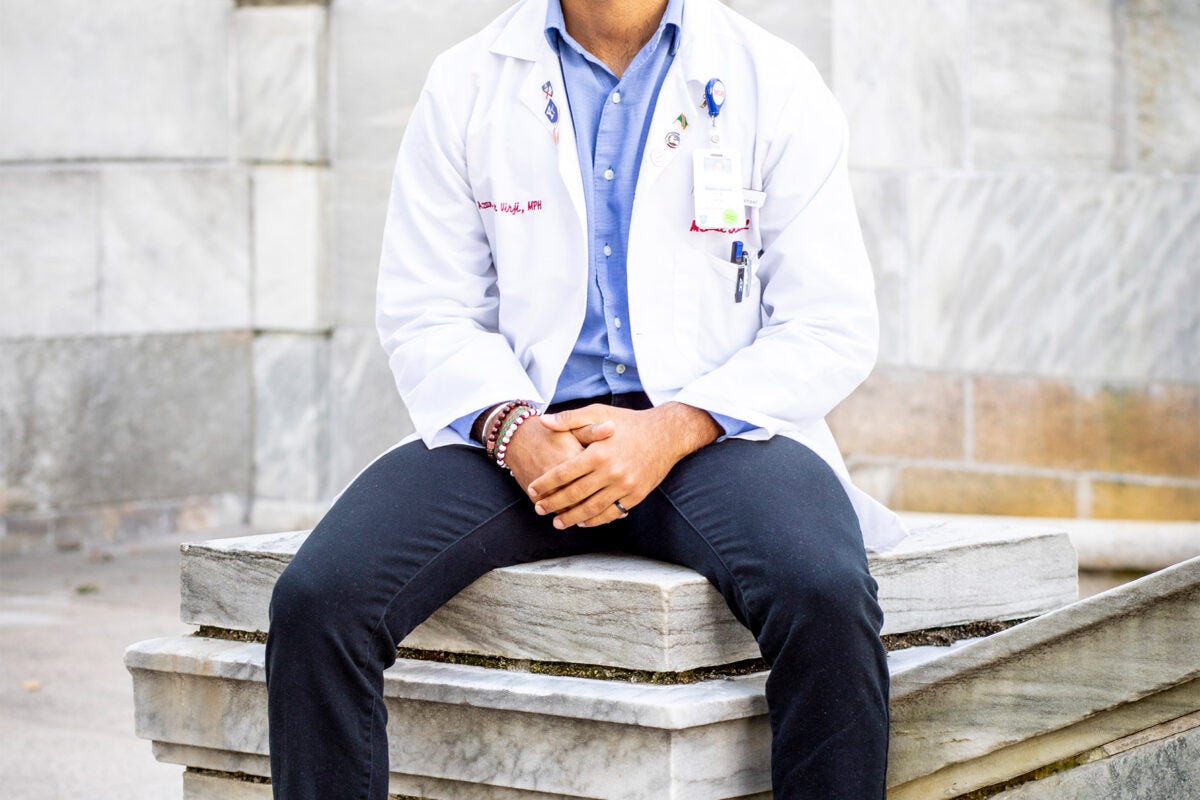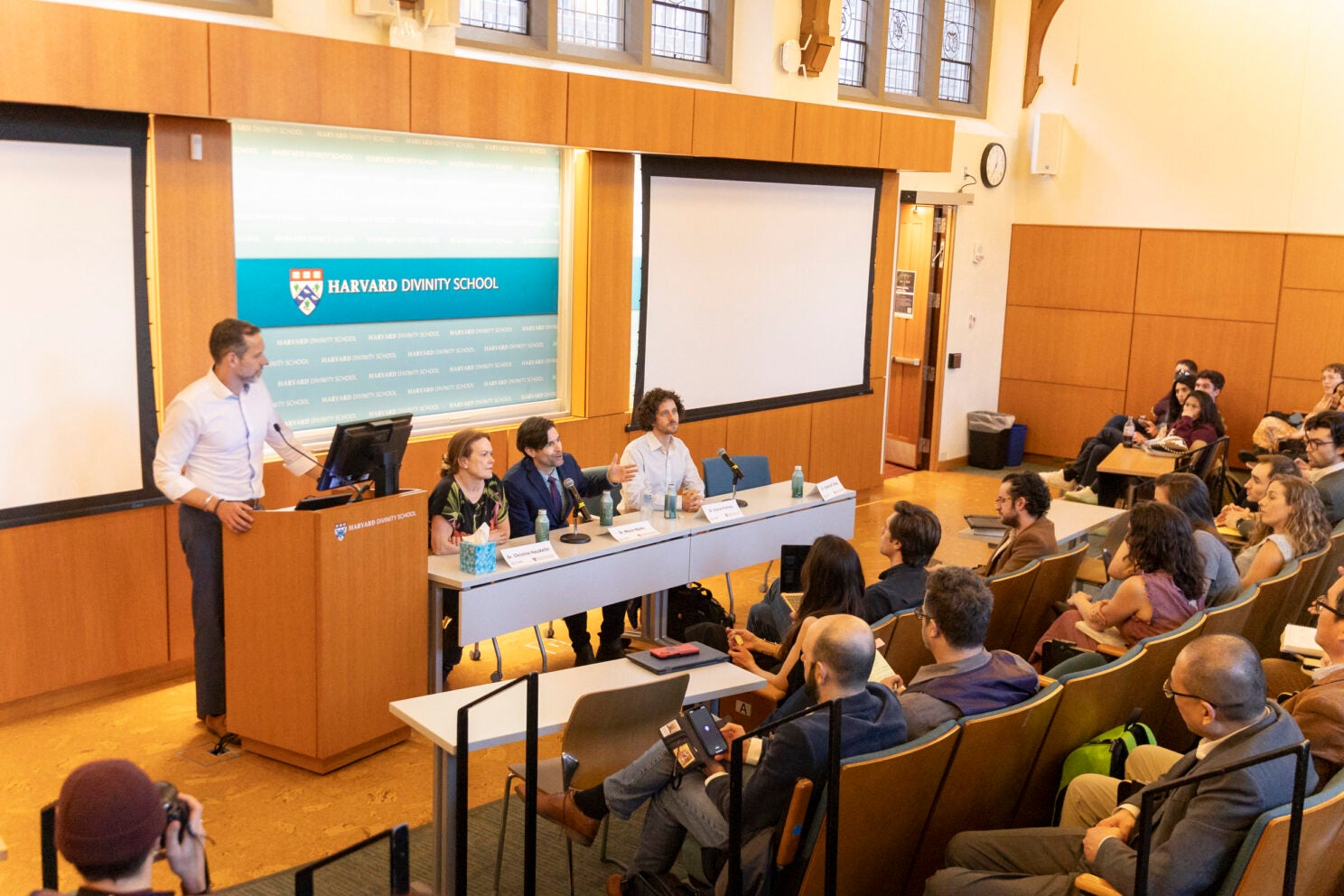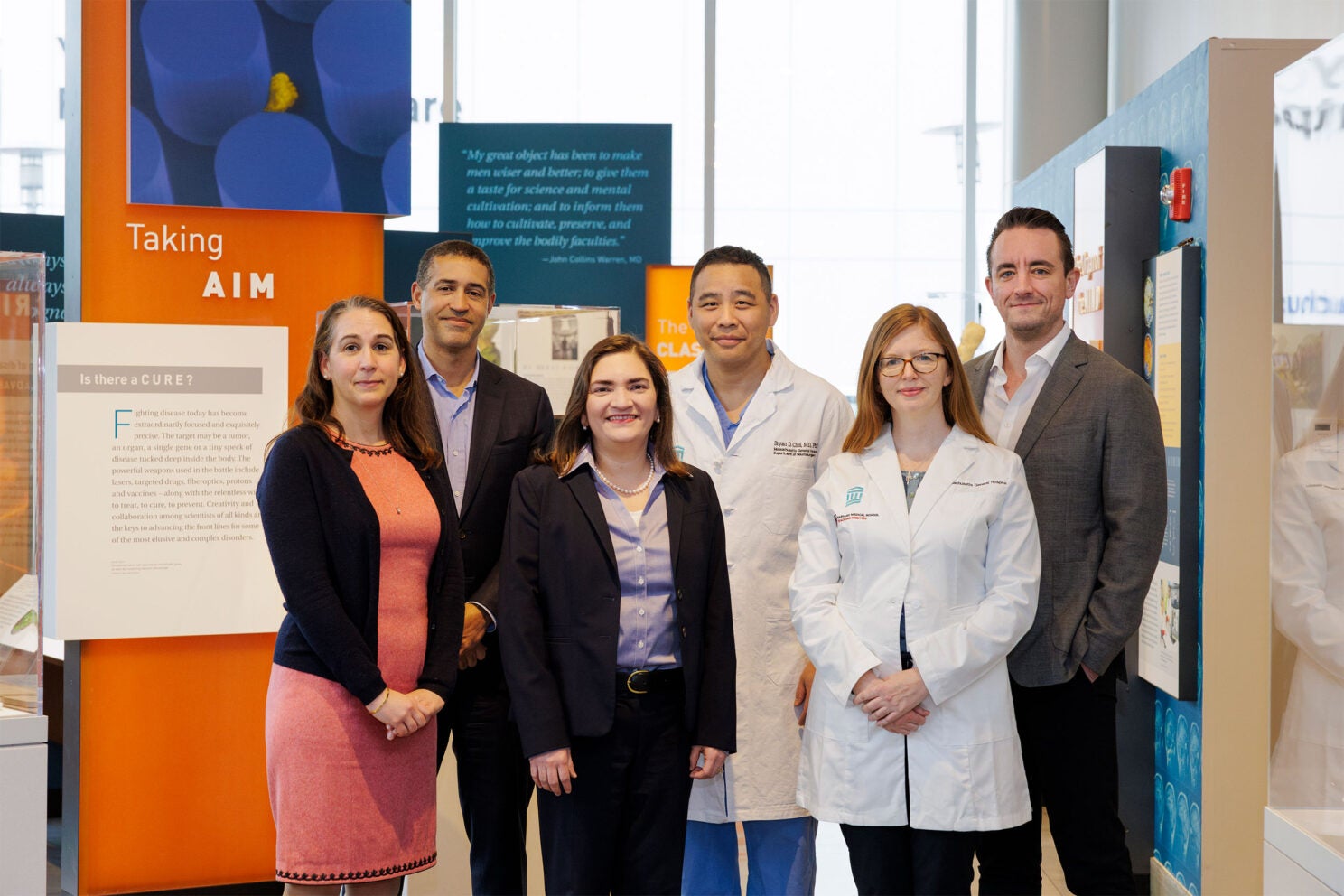Health
Only 1 in 4 addicted to opioids takes life-saving meds. Why?
Study examining potential solution to treatment gap — especially in rural areas — gets federal funding cut
Health economist Haiden Huskamp.
Niles Singer/Harvard Staff Photographer
Between 1999 and 2023, approximately 806,000 Americans died from opioid overdoses, according to the Centers for Disease Control and Prevention. Yet of the estimated 2.4 million U.S. adults with opioid use disorder, only one in four receives medications that can reduce overdose risk.
Telehealth has shown promise as a potential tool to prevent opioid overdose deaths, but funding for a study launched last year by health economist Haiden Huskamp examining its use and impact was terminated as part of the mass cancellation of federal research grants by the Trump administration in May.
“A lot of our research, including that for this grant, is looking at why so few people are getting evidence-based treatments for substance use disorder,” said Huskamp, Henry J. Kaiser Professor of Health Care Policy at Harvard Medical School. “Medications for opioid use disorder are highly efficacious. They reduce opioid use; they reduce overdose risk and other negative outcomes. These medications save lives.”
A shortage of clinicians specialized in treating opioid use disorders — particularly in rural areas — presents a major barrier to receiving care, she said.
“Our work has been trying to understand, since the pandemic in particular, who was using telemedicine for opioid use disorder,” said Huskamp, “and whether the availability of care, via telemedicine, has meant that clinicians who treat substance use disorders are now seeing more patients in areas where there aren’t enough doctors who do this work.”
217
Americans, on average, died each day from an opioid overdose in 2023, according to the CDC
For the past five years Huskamp, Ph.D. ’97, has been studying telemedicine as a strategy to expand access to opioid use disorder treatment and life-saving medications such as methadone, buprenorphine, and the quick overdose-reversal drug naloxone.
“Given the opioid epidemic that we are still in the middle of, telemedicine might be an answer because it could address a number of barriers to treatment access,” said Huskamp.
Although in May the CDC reported that opioid overdose deaths dropped from 83,140 in 2023 to 54,743 in 2024, the death toll remains high. According to the CDC, in 2023, on average, 217 people died each day from an opioid overdose.
The goal of Huskamp’s terminated four-year study, launched last year with a team of 15 researchers, was to provide evidence-based information on the efficacy of telemedicine that can guide policymakers as they address the opioid epidemic. It was a renewal of a previous grant, which yielded 24 different publications whose findings have informed new rules by the Drug Enforcement Agency to expand telemedicine access for treating opioid dependence. Funded by the National Institute on Drug Abuse, the latest research sought to examine quality of care and clinical outcomes by analyzing data from Medicare, Medicaid, commercial insurance, and national pharmacy claims.
Telemedicine for opioid use disorder became more widespread across the country during the COVID-19 pandemic, and researchers have been eager to probe the data to find out if it improved access to care for patients in remote areas, and how the quality of care compared to traditional in-person care.
“Anything we can do to try to improve the healthcare system to more effectively allow people to access care and to do so in a more efficient way is really important,” said Huskamp. “We need research like this to guide policymaking, so that we can improve the system as much as possible for people to get the treatment that they need.”














